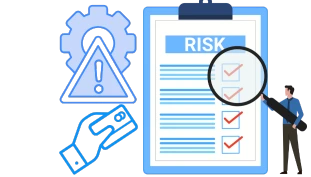Shopify is one of the world’s most prominent eCommerce platforms. While Shopify does not specialize in high-risk merchant accounts, it does provide third-party payment integration that allows store owners to partner with the right account providers (in this case, that would mean high-risk).
Why has Shopify remained so popular over the years, with its revenue in the first quarter of 2024 alone exceeding six billion dollars?[1]Charle Agency. “Top 32 Shopify Statistics, Facts, & Figures In 2025“. Accessed on March 21, 2025. The platform’s enduring success can be partly credited to its user-friendly design and accessible approach to selling goods and services online. Shopify offers web building, app integration, in-house payment processing solutions, and other tools that make it simple for business owners with limited tech experience to build world-class online stores. However, Shopify Payments doesn’t directly support high-risk businesses, thus restricting many merchants from processing card transactions online.
Read on as we explore Shopify’s approach to high-risk merchants and how you can process payments for your Shopify store.
How Does Shopify Classify a Business as High Risk?

Shopify has a wide range of businesses that are classified as high-risk. Most “regulated” industries—such as tobacco, cannabis, and firearms—fall into this category.
However, outside of operating in a volatile industry, there are other means by which Shopify can deem your business as high-risk. For example, chargebacks and other payment disputes can indicate poor business practices, which may result in Shopify rescinding your ability to process payments on their platform.
Additionally, if Shopify suspects you are using its platform to engage in fraudulent business practices, it will likely suspend your account and restrict your access to funds on Shopify Payments. Unfortunately, by using Shopify or Shopify Payments, your online business is at the mercy of the former’s terms and conditions. This means you may be subject to account closure or suspension without warning.
Shopify Payments & High-Risk Merchants
Shopify Payments does not partner with high-risk merchants. Unfortunately, Shopify’s definition of a high-risk business is quite broad. Businesses like tobacco suppliers, virtual currency platforms, and others fall under this descriptor.
Certain high-risk businesses can still access Shopify without Shopify Payments. Therefore, partnering with a third-party payment processor helps businesses bypass Shopify’s strict regulations regarding the processing of online transactions.
Understanding Shopify Terms and Conditions
Shopify Payment’s terms and conditions provide clear, easy-to-understand information regarding merchant expectations for using Shopify’s in-house payment processing tools. If you use Shopify Payments to process transactions for your online store, you will be subject to additional restrictions regarding industries, product types, and other core business activities.
Shopify’s terms and conditions cover the following:
- Payment Methods Offered
- Taxes
- Fees for your Customers
- Data Security
- Your Right to Privacy
- Restricted Uses
- Payment Network Rules
- Disclosures
- Registration
- Prohibited Business Types
Industries Shopify Considers High-Risk
The following industries are unable to access Shopify’s payment processing services:
- Investment credit services
- Money and legal services
- Virtual currency
- Adult content and services
- Counterfeit goods
- Gambling
- Cannabis
- Credit repair services
- Tobacco
- eCigarettes
- Online pharmacies
- Prescription-only products
- Peptides and chemicals
- Age-restricted products
- Weapons or ammunition
- Fireworks
- Sanctioned products
- Get rich quick schemes
- MLM
- Aggregation businesses
- Drug paraphernalia
- Video game credits
- Illegal products
- Heavily-regulated products
Shopify can update its list of prohibited industries and business types anytime. Merchants may lose access to Shopify Payments for other reasons, including participating in one of the abovementioned industries, evidence of fraud, excessive chargebacks and refunds, and participation in other high-risk transactions.
What Should You Do if Your Shopify Merchant Account Is Put on Hold?
Shopify enforces strict rules regarding payment processing. As such, Shopify Payments reserves the right to freeze accounts without warning.
If you only started using Shopify Payments and your account is on hold, Shopify may contact you to clarify additional processing information, request documentation, or ask for details regarding your business activities. In this case, account holds may last between 24 and 72 hours, provided you respond promptly. However, you can avoid funding holds or account termination simply by opting for a third-party solution to process high-risk transactions on Shopify.

Why You Should Avoid Payment Aggregators For High-Risk Processing on Shopify
Payment aggregators are popular with businesses looking for an easy sign-up process and expeditious access to accepting credit card payments. However, payment aggregators register multiple clients under a single merchant account, eliminating the need for merchants to register individual merchant accounts. While this is undoubtedly convenient for certain businesses, there are also downsides associated with using payment aggregators.
Below, let’s explore four reasons it’s best to avoid payment aggregators if you need high-risk payment processing:

Flat-rate payment structures
Certain aggregators offer flat-rate payment structures. While this structure makes it easy to predict how much your business pays for payment processing, it is often more expensive than other options. With merchant account providers, payment fees vary depending on card brand, payment type, and other factors.

Many unsupported industries
Payment aggregators may hesitate to collaborate with businesses in high-risk industries. If you plan to work with a payment aggregator, do your due diligence and check that it supports payments for your business type. Fortunately, some high-risk account providers are willing to offer payment services to various industries that payment aggregators have banned.

Lack of customer service
Certain payment aggregators have earned a reputation for freezing accounts without warning and providing insufficient support. Many account holders may wait weeks or months to find out why their accounts are frozen, thus preventing them from accessing the funds necessary for their professional operations.

Slow funding timeframes
Payment aggregators don’t always have the resources or supporting staff to fund your bank accounts in one to three business days. However, many traditional merchant accounts provide same-day or next-day funding.
How To Set Up A High-Risk Merchant Account On Shopify

To acquire a high-risk merchant account with Shopify, you must find a third-party gateway willing to handle the backend of your payment processing. As discussed in the previous section of this guide, opting not to use an aggregator offers a range of benefits. Some of these benefits include cheaper high-risk processing fees, quicker funding timeframes, and a broader range of supported industries.
To find the most suitable high-risk merchant account provider for your operations, consult local listings for merchant services. Also, feel free to peruse online for reputable businesses that specialize in your field, or, better yet, reach out to PaymentCloud, an industry-wide leader in high-risk payment processing.
Prior to approval, you must submit to an underwriting process, during which you will be required to submit specific information regarding your business. A provider may request documents, including bank statements, average transaction volume, and a summary of your business operations.
Once the underwriting process is complete and your provider has set up your merchant account, you may integrate it with your Shopify store using a compatible high-risk payment gateway.
PaymentCloud as a Shopify High-Risk Payment Processor
Forging a fruitful business partnership should be a priority for any eCommerce merchant. This is especially true for those operating in the high-risk sector, where you can never be too careful… or too prepared.
At PaymentCloud, we offer dedicated high-risk merchant accounts to Shopify store owners. Did we mention that our staff of experienced professionals is always available to assist and support? From integrating with your Shopify store to setting up and managing recurring payments, we can help you streamline your operations and maximize your potential in the payments sphere.
We specialize in helping high-risk merchants access the best in premium payment capabilities. For us, it’s all about making things convenient and accessible for staff and customers alike. Start the process of opening your high-risk merchant account today!
Shopify High-Risk Merchant Account FAQs
How do I deal with high-risk orders on Shopify?
Shopify Payments can help merchants benefit from sophisticated fraud analysis when appropriately utilized. If Shopify categorizes an order as high-risk, this feature indicates the order may result in a chargeback. Merchants can “verify, cancel, or refund the order.”[2]Shopify Help Center. “Fraud analysis“. Accessed on February 14, 2023. If your business chooses to proceed with the order, you may verify the IP address, call the phone number from the order, or conduct other forms of authentication to ensure the authorized cardholder is making the purchase.
How do you get high-risk notifications on Shopify?
While the fraud analysis tools vary depending on your Shopify plan, Basic Shopify plan merchants have access to fraud indicators. To find your notifications using a desktop:
- Head to Shopify admin.
- Select “Orders.”
- Select the order number to review.
What are considered high-risk products on Shopify?
Some examples of high-risk products include:
- CBD items
- Vape and e-cigarettes
- Pipes, bongs, and tobacco
- Firearms and ammunition
- Knives and weaponry
- Tasers
- Adult toys
As mentioned, Shopify assesses a business’s risk level based on its industry, chargeback ratio, and susceptibility to fraud. Refer to Shopify’s terms and conditions to determine whether or not the platform is compatible with your business type.
Does PayPal do high-risk in Shopify?
PayPal is a payment aggregator, meaning it doesn’t specialize in high-risk payments. PayPal may suspend your account if you operate in a high-risk industry. Account suspension could also occur if a merchant receives too many chargebacks or violates the terms of its user agreement.
For this reason, it’s better for merchants hoping to access high-risk payments via a Shopify account to work with a high-risk merchant account provider.







